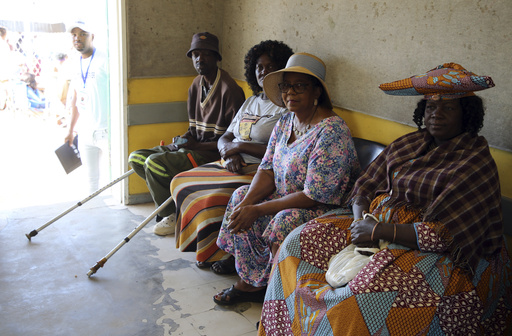
HARARE, Zimbabwe — In 2024, elections in Southern Africa showcased notable shifts in the political landscape, especially for long-standing liberation parties. While the southern region of Africa has enjoyed relative democratic stability compared to other areas on the continent marked by military coups and conflicts, the recent elections indicated a struggle for established parties to maintain their grip on power.
Many liberation parties that once earned the support of the populace by leading movements against colonial rule are now grappling with increasing frustration over economic issues and opportunities for the youth. With a significantly younger voter base emerging—many of whom have no recollection of colonialism—the twenty-somethings and teens are focusing on contemporary governance performance rather than the historical context of these parties’ origins. This generational shift has resulted in what experts describe as a transformation of the political landscape, as citizens prioritize immediate issues such as job creation over nostalgic allegiances.
For instance, Botswana, a nation known for its democratic practices, experienced a significant political upset when the ruling Botswana Democratic Party, in power since independence in 1966, was ousted amidst rising youth unemployment and economic downturns affecting the diamond mining sector. The late October elections saw opposition supporters celebrating in the streets as President Mokgweetsi Masisi conceded defeat before final vote counts were completed.
In South Africa, the African National Congress (ANC), which gained prominence through its anti-apartheid movement led by Nelson Mandela, lost its parliamentary majority for the first time. The ANC’s downward trajectory has been characterized by gradual loss of support since 2009, largely driven by public dissatisfaction regarding corruption and service failures. The party’s drop from 57.5% to 40% in 2024 signified a significant absence of faith from the electorate.
Namibia also witnessed a historical moment as Netumbo Nandi-Ndaitwah from the South West Africa People’s Organization (SWAPO) became the nation’s first female president. However, the party’s somewhat precarious position—holding only 51 seats in parliament—showed that it narrowly avoided displacement amidst the shifting political dynamics.
Experts have noted that the relative democratic consistency in Southern Africa is not without its concerns for ruling parties. Citizens appear to recognize the value of their electoral participation, creating a dilemma for governments that have relied on historical legacy rather than addressing current grievances. Political analysts indicate that economic hardship coupled with stagnation in job opportunities is motivating younger voters to demand accountable governance.
In Mozambique, the election results reaffirmed the continued rule of the Frelimo party for nearly 50 years. However, this outcome sparked protests that led to at least 100 fatalities, as marginalized voices, particularly among the youthful population, rallied against perceived injustices. The exiled opposition leader Venancio Mondlane has actively sought to challenge the election results while mobilizing youth discontent through various forms of protest.
Similarly, unrest unfolded in Comoros following the re-election of President Azali Assoumani. His win ignited violence that left one dead and many injured, underscoring the volatility of voter sentiment in the region. Observers suggest that the rise in protests mirrors a broader public discontent, hinting at a potential pivot away from established political entities that have failed to meet the aspirations of their populations.
Outside these developments in Southern Africa, a range of electoral outcomes throughout Africa revealed a trend of displacement for ruling parties across the continent of over 1.4 billion, home to the world’s youngest demographic. In Mauritius, a coalition of opposition parties swept all contested parliamentary seats, unseating the government of Pravind Jugnauth and marking a significant political upheaval.
In West Africa, Senegal presented a noteworthy election in March, which resulted in Bassirou Diomaye Faye, an inexperienced 44-year-old, being elected as the continent’s youngest leader. Faye’s victory came after a brief period of imprisonment, and his triumph was especially important given that over 60% of Senegal’s population is under 25.
Additionally, the return of former President John Dramani Mahama in Ghana indicated a public outcry against the policies of President Nana Akufo-Addo, showcasing voters’ willingness to embrace change.

